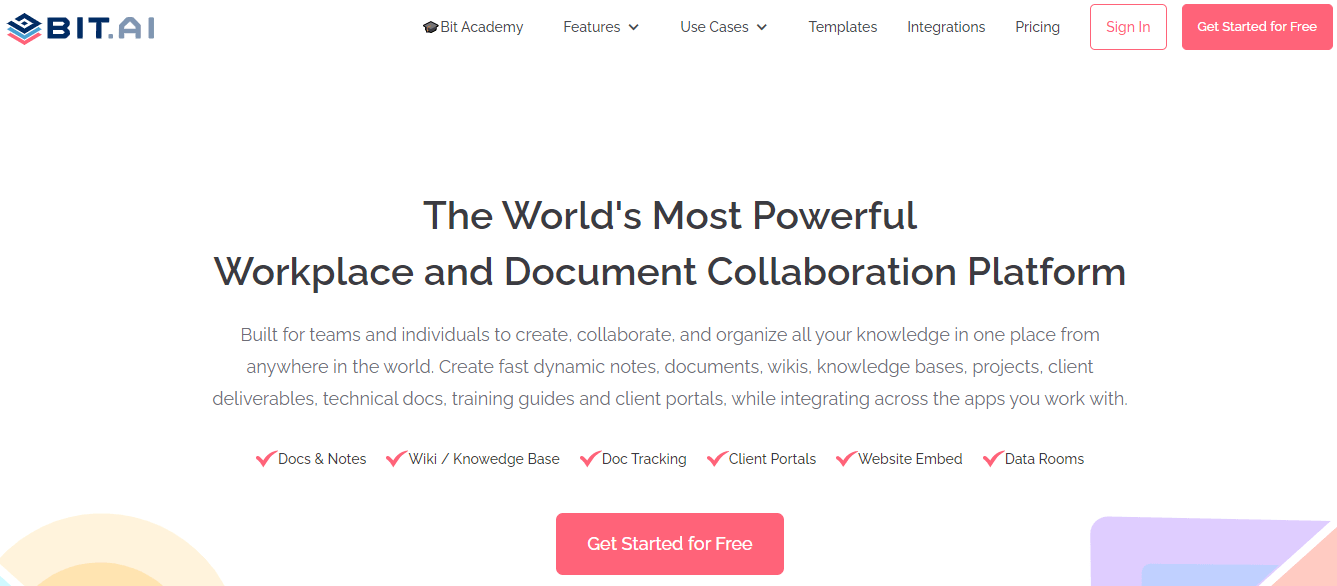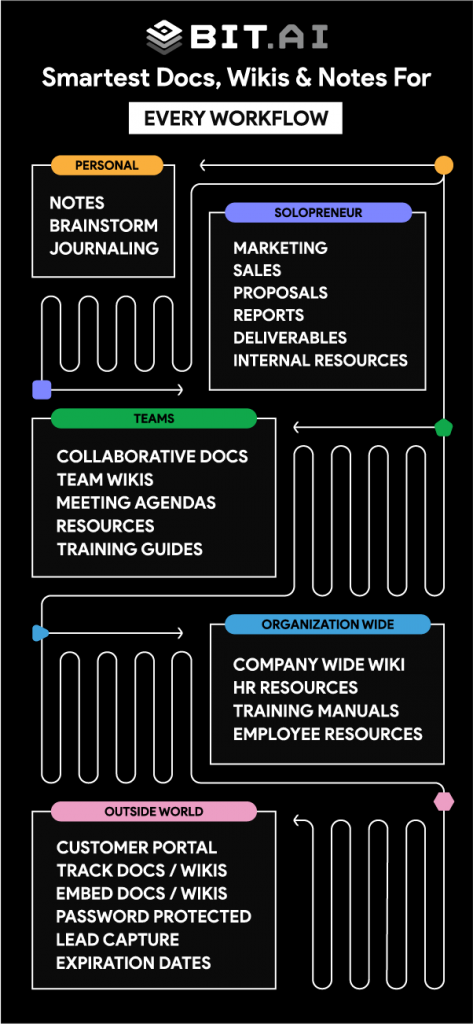Let’s face facts – managing an event is not your regular walk in the park. It requires skill, meticulous planning, a keen eye for detail, and lots of preparation.
From small gatherings to large-scale conferences, event management involves juggling multiple moving parts and ensuring everything comes together seamlessly.
So if you’re someone looking to manage events or learn about event management, this blog is for you. Here, we will delve into the world of event management and give you tips on how to successfully manage an event. Let’s get started!
What Is Event Management?
Event management is the process of planning and organizing events, occasions, gatherings, or celebrations. It involves coordinating various tasks and details to ensure that an event runs smoothly and successfully.
Event managers handle everything from selecting a suitable location, setting a date, managing budgets, inviting guests, arranging entertainment, overseeing logistics, and even post-event activities. Their goal is to create a memorable and enjoyable experience for all attendees.
Essentially, event management is about making sure events happen seamlessly, making people happy, and leaving them with lasting positive memories.
There are various types of events, each catering to different purposes and audiences. Let’s find out what they are in the next section!
What are the Types of Events?
Some of the common types of events are:
1. Conferences and Seminars
Conferences and seminars are events where experts, professionals, and individuals with shared interests come together to discuss and exchange knowledge on specific topics. These events often feature keynote speakers, panel discussions, workshops, and networking opportunities. Conferences and seminars play a crucial role in fostering learning, collaboration, and innovation within industries and academic fields.
2. Trade Shows and Exhibitions
Trade shows and exhibitions provide a platform for businesses and organizations to showcase their products, services, and innovations to potential customers and partners. These events are industry-specific and attract a targeted audience. Participants of these events have the opportunity to network, generate leads, and gain insights into market trends.
3. Music Festivals and Concerts
Music festivals and concerts are popular entertainment events that feature live performances from artists and bands. They draw music enthusiasts from all over, creating a fun atmosphere and fostering a sense of community among attendees. These events celebrate music, art, and culture, and they can range from small local gatherings to large-scale international festivals.
4. Sporting Events
Sporting events encompass a wide range of activities, from local amateur competitions to major international championships. These events bring together athletes and fans. Sporting events have a significant impact on local economies and tourism, making them important for both communities and businesses.
5. Weddings and Celebrations
Weddings and celebrations are personal events that mark significant milestones in people’s lives. They involve ceremonies, parties, and gatherings to honor and share joyous occasions like weddings, birthdays, anniversaries, and religious festivities. These events reflect the cultural traditions and values of different communities.
6. Corporate Events
Corporate events include a wide range of gatherings organized by businesses and companies. They can include product launches, team-building activities, award ceremonies, shareholder meetings, and corporate retreats. These events aim to strengthen business relationships, improve employee morale, and promote brand awareness.
7. Charity and Fundraising Events
Charity and fundraising events are organized to support philanthropic causes and raise funds for charitable organizations. These events can take various forms, such as galas, auctions, charity runs, and benefit concerts. They provide an opportunity for individuals and businesses to give back to society and contribute to important social and humanitarian initiatives.
Event Management vs. Event Planning
Event Planning
Event planning is the initial phase of the event-organizing process. It revolves around the conceptualization and creation of a detailed roadmap for the event. The event planner’s primary task is to understand the client’s objectives, requirements, and budget. Based on this information, they outline the event’s scope, goals, and theme.
During the planning phase, the event planner identifies suitable event dates, locations, and venues. They negotiate contracts with vendors, such as caterers, decorators, and audio-visual providers. Additionally, they create a comprehensive budget, ensuring that all aspects of the event can be covered within the allocated funds.
Event planners are responsible for obtaining necessary permits and licenses, especially for events held in public spaces. They also collaborate with clients to determine the guest list and invitations.
Event Management
Event management comes into play once the event planning phase is completed. Event managers take the detailed plan created by the event planner and execute it flawlessly. They handle the logistical aspects of the event to ensure everything runs smoothly.
During the event management phase, event managers coordinate with various teams and vendors. They oversee tasks related to venue setup, decorations, technical equipment, and catering. Managing the event’s schedule and flow is a crucial aspect of their role. They are prepared to handle unforeseen challenges that may arise during the event and troubleshoot any issues that come up.
Event managers are responsible for supervising event staff, including ushers, security personnel, and registration teams. They ensure that everyone involved knows their roles and responsibilities.
Additionally, event managers focus on attendee experience and satisfaction. They address any queries or concerns raised by guests and strive to create a positive and engaging environment. After the event concludes, event managers conduct post-event evaluations to gather feedback and identify areas for improvement in future events.
Key Differences
In essence, event planning is about strategizing and designing the event on paper, while event management involves turning those plans into reality. Event planners focus on the big picture, coordinating with clients and vendors to establish the event’s foundation. On the other hand, event managers dive into the nitty-gritty details, overseeing the execution and operational aspects of the event.
| Event Planning | Event Management |
| Strategizing and designing the event on paper. | Turning plans into reality. |
| Event planners focus on the big picture. | Event managers dive into the nitty-gritty details. |
| Coordinates with clients and vendors to establish the event’s foundation. | Oversees the execution and operational aspects of the event. |
While the roles are distinct, there is often some overlap between event planning and event management. In some cases, the same individual or team may handle both responsibilities, especially for smaller events. However, for larger or more complex events, having dedicated event planners and event managers ensures a more efficient and effective event organization process.
In short, event planning and event management are complementary stages in the event organizing process. Event planning lays the groundwork, creating a blueprint for the event, while event management involves the hands-on implementation and coordination of all event elements.
Now that you know a little bit about event management, let’s discuss a topic that is closely related to it – hybrid event management.
What is Hybrid Event Management?
Hybrid event management refers to the process of organizing and overseeing events that combine elements of both in-person and virtual experiences. In hybrid events, some attendees participate physically at a physical venue, while others join remotely through online platforms.
This approach offers a flexible and inclusive way to engage a broader audience, accommodating individuals who may be unable to attend in person due to geographical constraints, time limitations, or other factors.
Hybrid events have become super popular because of their ability to blend the benefits of in-person interactions with the convenience and accessibility of virtual participation. It increases audience reach, expands networking possibilities, reduces carbon footprint, and has the ability to adapt to changing circumstances, such as travel restrictions or public health concerns.
If hybrid event management has got you thinking about whether there are fully virtual or remote events, then we’re here to tell you that they exist. Let’s learn about them in the next section!
What is Virtual/Remote Event Management?
Virtual or remote event management refers to the process of planning, organizing, and overseeing events that take place entirely online, without a physical gathering. In simple terms, it’s like hosting a party or conference on the Internet! They allow people to participate from the comfort of their homes, offices, or anywhere with an internet connection.
Event organizers use various digital platforms and tools to create engaging and interactive experiences for attendees. They make use of software and platforms that enable live streaming of presentations, webinars, workshops, and performances.
So how do the discussions happen, you ask? People can ask questions and interact with speakers and other participants via the platform or software’s chat features and virtual networking sessions.
Now that you know about all types of event management, let’s now go over some of the best tips and tricks you must follow to successfully manage an event!
Best Tips For Event Management
1. Start Early!
Here’s the thing about event management – the earlier you start, the better. This is because starting the planning process early gives you more time to handle unforeseen challenges, secure the right venue and vendors, and ensure everything is well-organized before the event. So make sure that you start planning as early as possible.
2. Always Be Flexible
No matter how much you plan, things may not always go as expected. There might be unexpected changes or unforeseen circumstances that might come as a shock to your management. So always being flexible and adaptable will help you navigate last-minute changes and handle any unexpected issues.
3. Negotiate
As an event manager, negotiation should be in your blood. Your negotiation skill will significantly impact your overall budget and the quality of services you receive. When negotiating with venues, vendors, and suppliers, it’s essential to have a clear understanding of your event’s budget and specific requirements.
Research and gather multiple quotes to compare prices and offerings from different providers. This will give you leverage during negotiations and help you identify and get the best deals. Be prepared to discuss your requirements and compare multiple offers before making decisions.
4. Assign and Delegate Responsibilities
Your ability to assign and delegate responsibilities is another much-need skill as an event manager. You need to be able to delegate specific tasks to team members or volunteers.
Make sure that you clearly define roles and responsibilities for each member of your event management team. This ensures everyone knows their tasks and can focus on their area of expertise without the risk of important details slipping through the cracks.
Keep the lines of communication open among team members. Regularly scheduled meetings or updates allow everyone to share progress, challenges, and solutions. It fosters a collaborative environment, where team members can support one another and address any emerging issues promptly.
5. Create a Shared Document
Having a shared document where you keep all event-related information, timelines, and updates in one place can ensure that there is no miscommunication. For this, you need to make use of collaborative tools or project management software. And here is where we would like to introduce you to Bit.ai.
 Bit is an all-in-one knowledge management and document collaboration platform designed to help teams create, collaborate, share, track, and manage knowledge in one place. It offers a commonplace for everyone to collaborate in real-time and create documents, brainstorm ideas, share knowledge, and get work done collaboratively.
Bit is an all-in-one knowledge management and document collaboration platform designed to help teams create, collaborate, share, track, and manage knowledge in one place. It offers a commonplace for everyone to collaborate in real-time and create documents, brainstorm ideas, share knowledge, and get work done collaboratively.
With Bit, you can easily create multiple workspaces and folders around multiple events, projects, and clients so that you can store and manage information in an organized manner.
Within each workspace, you can create interactive living documents, manuals, notes, knowledge bases, to-do lists, and more. The best part? Bit.ai integrates with over 100+ web applications, such as Google Drive, OneDrive, YouTube, Airtable, Loom, Miro, LucidCharts, etc., so you can just embed all your important digital content into a Bit document and share it with others.
That’s not all! Bit’s real-time collaboration features allow you to easily collaborate and simultaneously work together with multiple people while creating documents. This means anyone who has editor access to the documents can edit, add, and proofread documents in real time.
Having software like Bit can truly enhance your overall event management. So do yourself a favor and get Bit right away!
6. Always Have a Plan B
Let’s face it – with event management, you know that there is always the chance of something going wrong. Whether it is bad weather, technical difficulties, or unexpected cancellations, things can go south very quickly. So it is extremely crucial that you have a backup plan or plan B to be prepared for these scenarios. This will ensure that you’re ready to handle potential issues more effectively and efficiently.
7. Do a Rehearsal Run
Doing a rehearsal or practice run before the actual event day is very important, especially if the event is complicated or has many different parts. It helps you find and fix any problems ahead of time.
During the rehearsal, you go through the event like it’s happening for real, but without the audience. This way, you can see if everything works well together. By doing a rehearsal, you avoid surprises or issues on the actual event day. It makes the event go smoother and more enjoyable for everyone. It also lets the people involved know their roles and what to do, so they feel more confident on the real day.
8. Photograph Everything
There’s a funny saying that goes around – click pictures or it didn’t happen. Of course, this is not to say that your event didn’t happen, but it points to the importance of clicking pictures in the social media era.
Pictures and videos are valuable for marketing, social media, and post-event analysis. To get the best shots, hire a professional photographer or ask someone responsible to take pictures of important moments during the event. These visual memories will make your event more memorable and can be used for future events too.
9. Get Online and Social
This is the age of social media and they offer powerful tools to promote your event, engage attendees, and create excitement before, during, and after the event.
Before the event, use social media channels like Facebook, Twitter, Instagram, and LinkedIn to share event details, such as date, location, agenda, and speakers. During the event, actively use social media to provide live updates, share behind-the-scenes glimpses, and highlight key moments.
Encourage attendees to share their experiences and photos on social media, using the event-specific hashtag. This user-generated content will create a buzz around the event, reach a wider audience, and attract more interest in real-time. Also, consider hosting live streams or virtual components for remote attendees, increasing the event’s reach beyond the physical location.
After the event, continue engaging with attendees through social media. Share post-event content, such as photos, videos, and presentation slides, to keep the momentum going.
10. Follow-up Immediately
After the event, it’s important to show appreciation to attendees, sponsors, and partners. Sending thank-you emails is a thoughtful gesture that acknowledges their support and participation.
Additionally, request feedback from attendees about their experience. This feedback is valuable in identifying areas of improvement and understanding what aspects of the event were well-received. Use this input to enhance future events and make them even better.
Timely follow-ups are crucial as they demonstrate your organization’s professionalism and commitment. Sending thank-you emails promptly after the event keeps the positive energy alive and strengthens your relationships with attendees, sponsors, and partners.
Wrap Up
To wrap up, event management is an exciting and fulfilling field that requires diverse skills. From generating ideas to organizing flawless events, event managers play a vital role in creating unforgettable experiences.
Whether it’s a small gathering or a big conference, well-planned events leave a lasting impact, bring people together, and create extraordinary moments.
As the demand for such events grows, event management remains a rewarding profession for those passionate about creating memorable experiences. And we hope this blog has helped you learn all about it! Thanks for reading and good luck with your event management!
Further Reads:
Performance Management: Improve Employee Engagement & Productivity!
Enterprise Document Management: Types,Importance & Best Software!
Enterprise Content Management: A Guide To Implementing ECM!

Related posts
Bit.ai | Watch to Learn More
What is Bit.ai?
Bit.ai is an innovative AI-driven knowledge and Document Managment suite designed to empower knowledge workers by streamlining the creation of, documents, wikis, and notes. With an intuitive interface and seamless integration, Bit.ai acts as a versatile assistant to help you collaborate, generate, organize, and visualize your ideas effortlessly. Whether you are drafting a report, managing a project, collaborating with your team or clients, or brainstorming new concepts, Bit.ai brings intelligence and creativity to every aspect of your work process.


